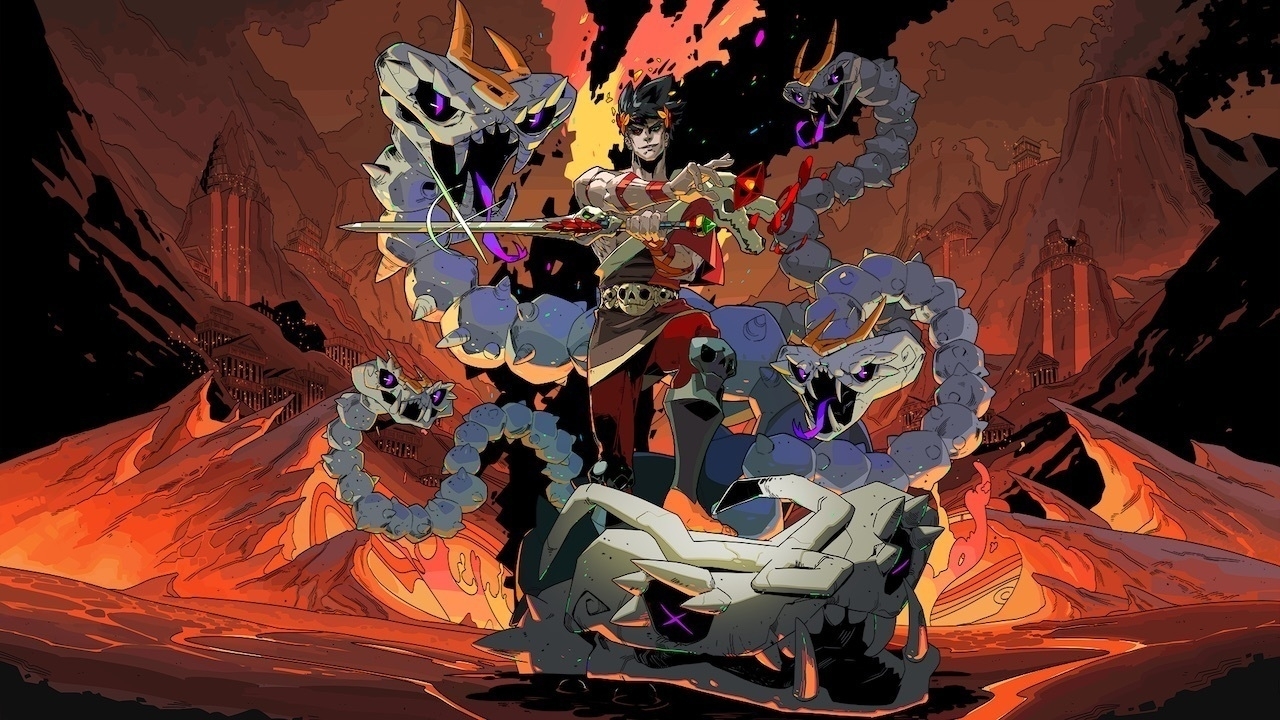Blog
My Weekend in HADES

Hey! This post is adapted from the introduction to my newsletter this week. It comes out (roughly) every Sunday, and I give you a quick note from me, along with three awesome things on the Internet which I think you should read. If you haven’t already signed up, you can do so here. Enjoy.
Hello and Happy Sunday, gang.
It has been a week, hasn’t it? I think we all saw some sights and sounds that none of us expected, but that’s 2020 in a nutshell, isn’t it?
At the same time, I personally had myself a long weekend, taking Friday off as today, October 4th, the day I write this, is my birthday.
I don’t bring this up to get shameless birthday wishes or anything like that, it’s just true. And the weekend itself — it’s about exciting as it could be In This Current Climate. I made the effort to take a trip to the just-far-enough-away-that-it’s-a-treat Trader Joe’s. I caught up on some comic books (I continue to highly recommend Chip Zdarsky’s run on Daredevil). And that which I seemed to sink the most time into, time spent with the new game from Supergiant, Hades.
Supergiant Games is responsible for some of my favorite games in recent memory, titles like Bastion and Transistor, and their newest title, Hades stands tall among them.
The concept of Hades is simple: in it, you play as Zagreus, the son of Hades, lord of the Underworld. You want to fight your way through the underworld to escape. This is not an easy task.
But as Hades is what is called a “rogue-lite" game, it’s made even more difficult.
Rogue-lite games are built around the idea of a “gameplay loop". Meaning, essentially, each time you play, while the levels might be the same, the skills you start out with, the power-ups you find — they’re not. Sometimes it might be more in your favor. Sometimes it’s not.
This isn’t a genre I’ve really been into in the past, but in the case of Hades, I have been devouring it. The failure is the game. Each game over makes you better, stronger, more prepared for the next run. You die. You return to the beginning. You look to improve on your failure. You do. You die again. You return again to the beginning. Lather, rinse, repeat.
And it’s that idea which makes the game resonate so well. In my 36 years, if I’ve learned anything, it’s that life isn’t a zero-sum game. You don’t succeed without countless failures and learning moments along the way. Each moment of glory is built on the pile of moments no one cared about or saw, as you built the best version of yourself.
It’s a lesson which resonates deeply, and is really the core of a game like Hades.
In their (spoiler-heavy) review of the game for Kotaku, Nathan Grayson hits this nail even further on the head:
Hopelessness is in right now. How could it not be? People rose up, but the historically awful status quo rose higher. What is there left to do but go on Twitter and Facebook and post different variations of “We’re fucked" alongside whatever headline you read most recently? I’m a white guy in no present danger beyond what I subject myself to. Despite this, I spent a lot of the summer despairing.
I will not go so far as to say Hades got me through it. At this point in my life, I am skeptical of games’ ability to do things of that magnitude. But as the summer wore on, Hades’ story of somebody refusing to despair in the face of overwhelming systemic failure and instead pivoting into helping rebuild his community and support his found family took on a new significance.
Yes, the graphics are stunning. Yes, the gameplay is wonderfully tuned. Yes, the music is absolutely fantastic. But more than anything, Hades is a game where you as a player learn just as much about the mechanics as you learn something about growing and persevering.
And really, isn’t that what we need right now?
Hades is available now for PC and Nintendo Switch.
Monday October 5, 2020